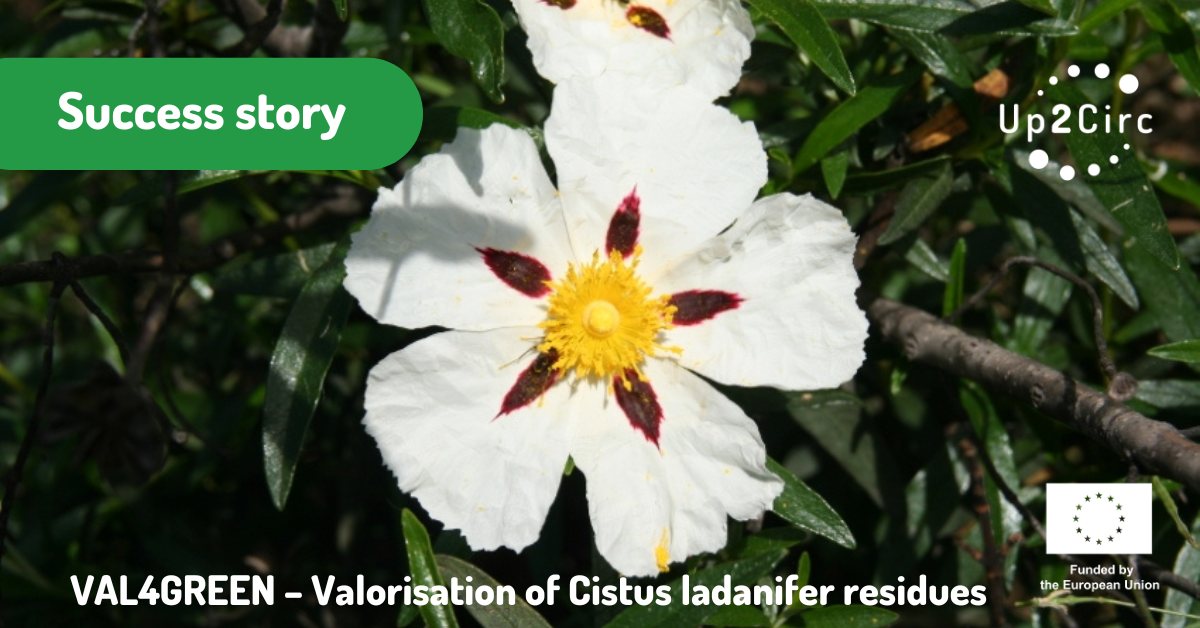
Feasibility study to developed sustainable processes to extract valuable compounds and separate lignin and cellulose.
COMPANY NAME
Biottonia Naturalcare
COUNTRY
Spain
SECTOR
Healthcare
CIRCULAR BUSINESS MODEL
Recovery and recycling
CHALLENGE
Biottonia generates large amounts of rockrose residues (currently ~800 tonnes/year, with projections up to 5,000 tonnes). Traditionally these were treated as waste, causing environmental impact and lost value. The challenge was to minimise waste and find sustainable, profitable uses for lignin- and cellulose-rich residues.
SOLUTION
The project developed sustainable processes to extract valuable compounds (e.g., labdanum, phenolics) and separate lignin and cellulose. These were converted into carbon-based materials via electrospinning and pyrolysis, suitable for batteries, supercapacitors, and fuel cells. Additionally, extracts with antioxidant and antimicrobial properties were identified for cosmetics and cleaning products.
CIRCULAR ECONOMY STRATEGIES/BUSINESS MODEL IMPLEMENTED
The project validates a circular economy model for the valorisation of plant residues (Cistus ladanifer) from essential oil production, transforming them into carbon-based materials for energy storage and other high-value products.
IMPACT
Environmental impact:
– Reduction of up to 100% of residues within 5 years.
– Avoided CO₂ emissions by replacing fossil-based carbon materials.
Economic impact:
– Investment: €2.57 million.
– Annual revenues projected: €5.87M–€17.61M.
– ROI above 500%, IRR >100%, NPV up to €54.87M over 5 years.
Social impact:
– Creation of at least 9 direct jobs in rural Extremadura.
– Strengthened local economy and contribution to EU strategic autonomy.
KEY TAKEAWAY
VAL4GREEN demonstrates how abundant plant residues can be transformed into high value-added products through circular strategies, combining environmental sustainability, rural development, and strong economic potential.
